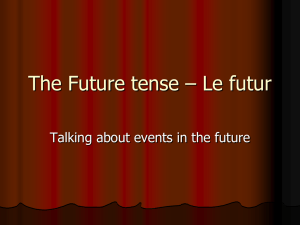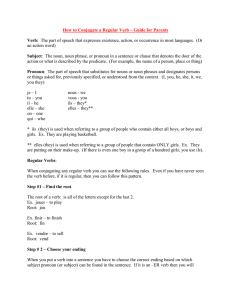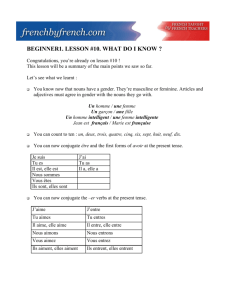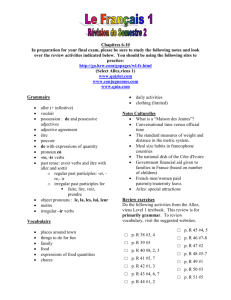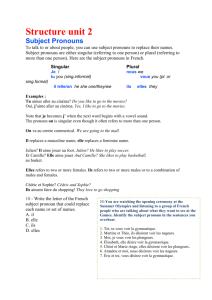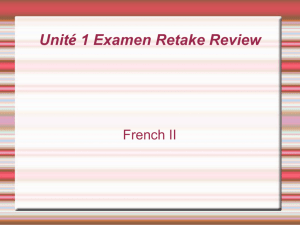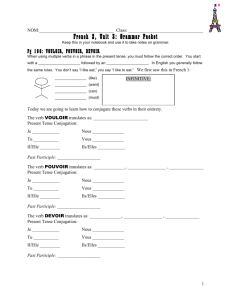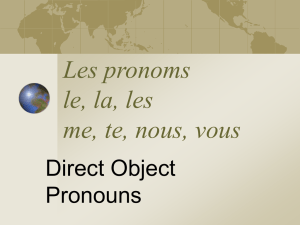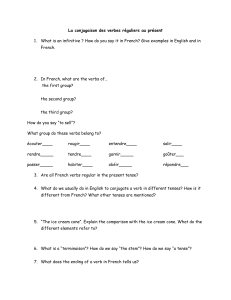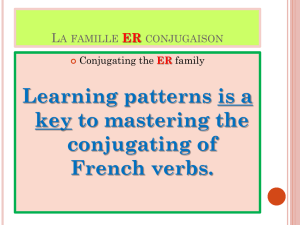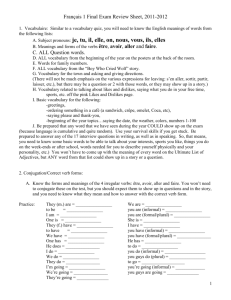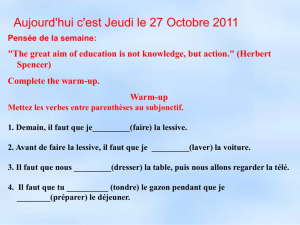Basic Tenses For National Exams
advertisement
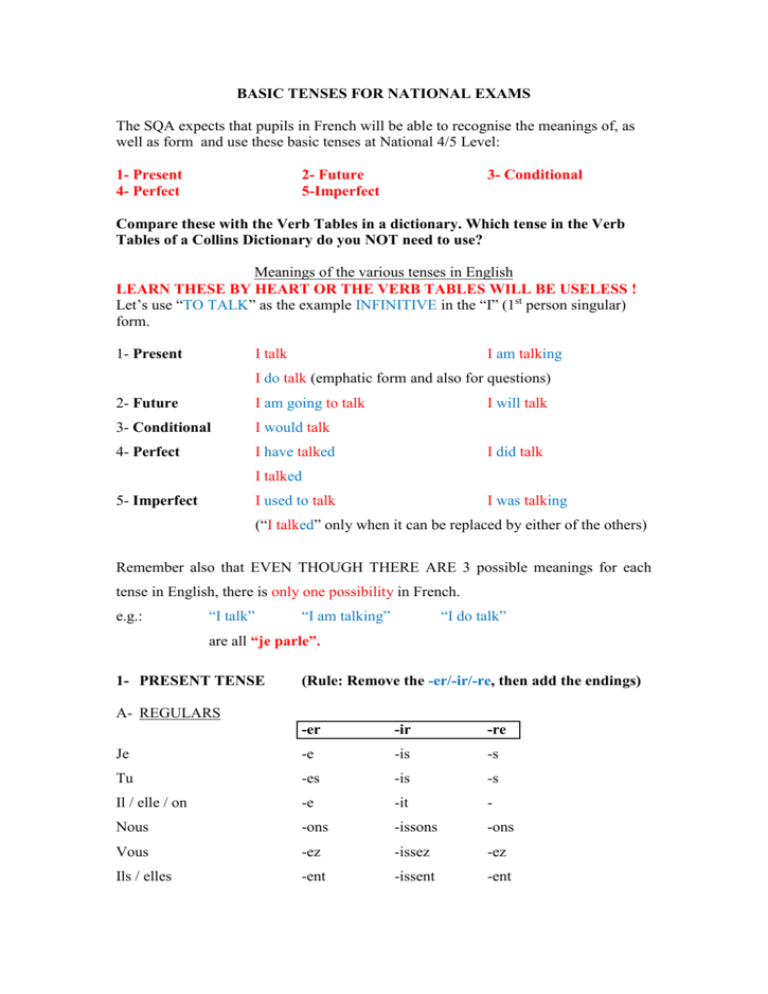
BASIC TENSES FOR NATIONAL EXAMS The SQA expects that pupils in French will be able to recognise the meanings of, as well as form and use these basic tenses at National 4/5 Level: 1- Present 4- Perfect 2- Future 5-Imperfect 3- Conditional Compare these with the Verb Tables in a dictionary. Which tense in the Verb Tables of a Collins Dictionary do you NOT need to use? Meanings of the various tenses in English LEARN THESE BY HEART OR THE VERB TABLES WILL BE USELESS ! Let’s use “TO TALK” as the example INFINITIVE in the “I” (1st person singular) form. 1- Present I talk I am talking I do talk (emphatic form and also for questions) 2- Future I am going to talk 3- Conditional I would talk 4- Perfect I have talked I will talk I did talk I talked 5- Imperfect I used to talk I was talking (“I talked” only when it can be replaced by either of the others) Remember also that EVEN THOUGH THERE ARE 3 possible meanings for each tense in English, there is only one possibility in French. e.g.: “I talk” “I am talking” “I do talk” are all “je parle”. 1- PRESENT TENSE (Rule: Remove the -er/-ir/-re, then add the endings) A- REGULARS -er -ir -re Je -e -is -s Tu -es -is -s Il / elle / on -e -it - Nous -ons -issons -ons Vous -ez -issez -ez Ils / elles -ent -issent -ent B- IRREGULARS These basically have to be learned by heart (Especially être / avoir / faire / aller) but there are a few basic rules to remember if the Verb Table does not give you all parts: i) Je-Tu parts are usually the same and will end in –s or a few –x e.g. je peux, tu peux je bois, tu bois ii) Il/Elle/On parts are the same for all 3 and usually end in –t or a –d e.g. il peut, elle boit il répond, il vend iii) Nous ends –ons (except “nous sommes” - we are) iv) Vous ends –ez except “vous êtes” “vous dites”, “vous faites” (you are, say, do respectively). v) Ils/Elles always end –nt These rules will help you select the correct form from the dictionary verb table (where not all forms appear). However, to save time in exams, learn by heart the commonest ones: ÊTRE, AVOIR, ALLER, FAIRE. 2-FUTURE TENSE (i) Going to … For all verbs you can simply use ALLER + INFINITIVE (the bit given in the dictionary). E.g. Je vais ( I am going) regarder Tu vas (you’re going) voir Il /elle/on va visiter Nous allons descendre Vous allez manger Ils/elles vont etc… (ii) Will … Start with the INFINITIVE and leave on the -er/-ir (for –re verbs just remove the last –e) then add these endings: a) Je -ai je jouerai / je vendrai / je finirai Tu -as tu joueras / tu vendras / tu finiras Il/elle/on -a Nous -ons Vous -ez Ils/elles -ont Complete the rest yourself in your jotter (iii) IRREGULARS (Exceptions to the rule about just adding to the Infinitive:) Aller (ir-) ► j’irai Avoir (aur-) ► j’aurai Être (ser-) ► je serai Faire (fer-) ► je ferai Voir (verr-) ► je verrai Recevoir (recevr-)► je recevrai Savoir (saur-) ► je saurai Pouvoir (pourr-)► je pourrai Devoir (devr-) ► je devrai Vouloir (voudr-)► je voudrai Courir (courr-)► je courrai Venir (viendr-)► je viendrai N.B. the endings are the same for all these verbs. See b) above. 3- CONDITIONAL (meaning “would”) Use the same “stem” as for the FUTURE but add this different set of endings (which you should notice is the same set for IMPERFECT). Je -ais Nous -ions Tu -ais Vous -iez Il/elle/on -ait Ils/elles -aient The most commonly used examples are: Je voudrais = I would like J’aimerais = I’d love Je préférerais = I would prefer j’achèterais = I’d buy 4- PERFECT TENSE (see separate sheets) 5- IMPERFECT TENSE (meaning “was/were …ing” and “used to …”) This is formed by taking the NOUS part of the PRESENT TENSE of your verb and removing the –ons. Then you add the endings listed above to this “STEM”. e.g. “I used to play” start with Nous Jouons – remove -ons You are left with JOU-, then add endings “je …ais” je jouais The only exception is “ETRE” (because it has the only NOUS part not ending in –ons which is nous sommes). Learn this: J’étais Tu étais Il/elle/on était Nous étions Vous étiez Ils/elles étaient
